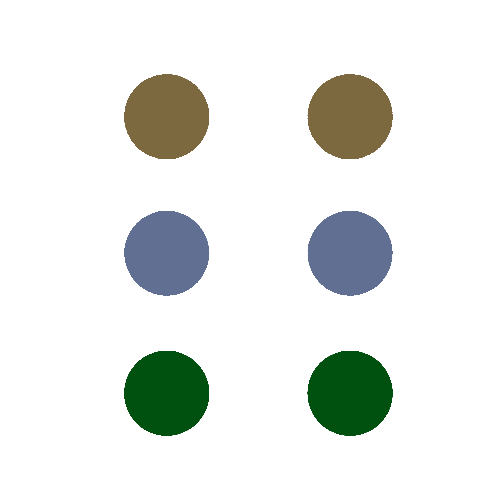Locations
Androi: fishing district in Craguesport originally founded by a danaash
Hondjikal: forestry district of Craguesport originally founded by an arghor. The surname was adopted by ‘spiral horn’ arghor
Jalu: financial district of Craguesport originally founded by a grimm
Piladata: military district in Craguesport originally founded by a daga. The word means ‘yellow tooth’
Searbaltoir: crafting district in Craguesport originally founded by a dwarf. The name means ‘bitter digger’ and adopted by a family that survived the Bitter caverns collapse in the year 143 AWB. 136
Wusdweit: farming district of Craguesport originally founded by a hablis. It means ‘willow’ in Hablis
Spells
Aagun: the command to transform Qrodin’s magical stylus into a staff
coax: (spell) a deep hum—so low it cannot be heard by most danaash—layered beneath a spellcaster’s words that lulls most creatures into doing as the spellcaster wishes
Don’t Look Now: (spell) the caster transforms a single arrow into splinters that expand before reaching the target
Home Dome: (spell) uses a stone or pebble to create a domed structure that protects from the weather. The type of rock used may help protect the inhabitants from varying other exterior dangers
Keep Up: (spell) allows the caster to increase their walking speed
Soothe: a sedative tone that causes relaxation. It is accompanied by repetitive movements of the hands
Surprise Sucker: (spell) an invisible alarm that will notify the caster of an intruder
Whoosh: (spell) flames shoot from the caster’s fingers
Dwarfish
sia’damhalla: (Dwarfish) cloth made by the dwarfs of Dwarf Mountain which has similar properties of leather armor but the look and feel of silk
Elvish
Siroha suskirta: (Elvish) response to the greeting, “Tama musari vasidara” which has no direct translation but conveys health and happiness in return
Sueh ba’ mira: (Elvish) formal greeting when meeting for the first time. It is accompanied by stacking one’s forearms such that the inside of one’s wrists are stacked one above the other and facing the person being greeted
Tama musari vasidara: (Elvish) roughly translated to “blessings on your journey (through life)
Karatol
ama/Ama: (Karatol) a member of the Karatolii that raises children and often used as a name for that person, by those children
Ama’ani: (Karatol) Roughly, it’s a substitue caretaker. Oftentimes, this person is a relative or very close friend of the family
valore: (Karatol) the members of a caravan outside of one’s immediate family
varsome: (Karatol) the bond that forms between members of a caravan that are outside of one’s immediate family
Yu nu pot prita o Qat tu o Qrow: (Karatol) phrase often recited by Qat that translates, “you can’t catch Qat with Qrow“
Oramische
bandi(s): (Oramische) form of measurement equal to one Earth meter. Three Oram feet equal one bandi. Ten hands also equal one bandi. Derived from the height of an abandi named Ium Koot, the creator of standardized measurements across Oram
domi: (Oramische) luxury, individually owned condominiums
Owanulafas
Didi atete: (Owanulafa) until next. A salutation said when one departs
edi: (Owanulafa) command to rise (from a kneeling position)
ero ami: (Owanulafa) my friend
gia faa: (Owanulafa) the high priest in charge of all decisions in a monastery
Iniki: (Owanulafa) greeting
keka: (Owanulafa) a student. An acolyte of the Tiolapin religion
Nigbe: (Owanulafa) Mister
oku: (Owanulafa) an assistant instructor. One who is a specialist in their field working in a junior position while continuing their training/research
